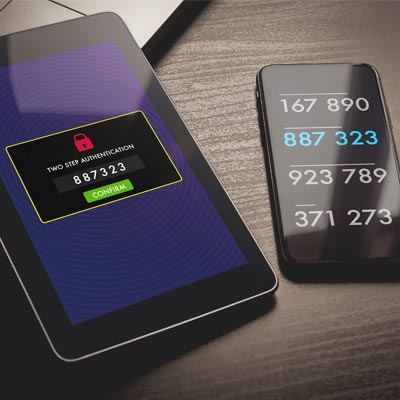
Fraud checks
Intelligent and automated fraud prevention significantly minimizes the risk of double bookings or payment defaults for business owners when processing payments.
Move
Select
esc
Exit

Intelligent and automated fraud prevention significantly minimizes the risk of double bookings or payment defaults for business owners when processing payments.

Novalnet focuses not just on pure payment processing but also on the premature avoidance of payment defaults through our integrated risk management for fraud prevention. Intelligent and automated fraud prevention significantly minimizes the risk of double bookings (duplicates) or payment default for the contractual partner when processing payments.
Novalnet offers you a comprehensive selection of modules for fraud prevention, which carry out various plausibility checks and database checks during the ordering process. These modules for fraud prevention (fraud modules) can also be individually tailored to the website to be billed. In addition to these fraud modules, Novalnet also uses the latest and most progressive technologies, such as machine learning (machine learning) and device fingerprinting, etc., which each contain detailed evaluations, e.g. buying behavior and user browsing, transaction details and their plausibility, information about current and past orders, geolocation functions such as invoicing, shipping and user IP, details of the payment methods, habit-specific data and behavior, device information about desktop and mobile devices and their links. Take your risk management for online payments and payment processing to a new level with our risk management for online payment.
All available fraud checks are built into the Novalnet payment process, depending on the requirements of the different payment types. These fraud checks can be activated or deactivated in the Novalnet administration portal for each of your projects.
Novalnet offers two fraud checking modules “PIN by Callback” and “PIN by SMS”, which can be integrated into the payment process in a similar way to the checking of the TAN offered by banks. You can activate or deactivate the various fraud checking modules according to your needs for payment processing.
You can use the credit checks to automatically block payment methods in the checkout so that customers with low credit ratings can only choose payment methods that are safe for you as a retailer. The fraud modules can be perfectly interlinked and combined according to your needs. This effectively minimizes the risk.
Some of the fraud checking modules can also be run as external fraud checking prior to payment, depending on the needs of your line of business.
The fraud modules are already integrated into the Novalnet payment plugins and can be easily configured thanks to the self-explanatory menu navigation and user interface.
A payment default is also handled fully automatically: If despite all precautionary measures, a payment disruption occurs, the integrated and fully automated dunning and collection process of Novalnet starts. Your end customers will receive a payment reminder (by email or post). This can be adapted to your own corporate identity. If payment is made within the set deadline, the collection process will be discontinued without consequences. If this payment is not made, the automated receivables management including collection services will take place (if you wish). This automation makes the entire process easier for you and ensures stable growth. This service is purely optional and does not have to be used.
The subscription check uses the data entered, such as email address and bank details, to check for each new booking whether the end customer already has an active subscription to this offer.
The bank account check carries out a plausibility check of the bank details, i.e. H. he checks that the combination of IBAN or account number and bank code is plausible bank details. However, no statement can be made as to whether the account actually exists and whether it belongs to the specified account holder.
The BIN country check is a comparison of the country of origin specified by the buyer and the country of origin of the card-issuing bank. If, for example, the buyer specifies Germany as the country of origin, but the credit card comes from America, the transaction will be rejected. The check can be set so that, for example, Austrian cards are also accepted from Germany.
During the blacklist check, a negative database is checked to determine whether the customer has already appeared negatively.
With the ConCheck RealTime, you receive an assessment of the payment default risk of consumers. The ConCheck RealTime links various information and data sources and supports credit decisions in real-time.
With the RiskCheck RealTime, you receive an assessment of the risk of payment default (comparable to the ConCheck RealTime), but both private individuals and companies are assessed at the same time.
Query on companies possible (basically all legal forms), but is particularly recommended for the types of company: commercial enterprise, sole proprietorship, freelancer
Location check and address comparison, including address plausibility check
Collection data, among others from the EOS Group (Otto Group) and the Euler Hermes Group (AllianzGroup)
The integrated score for the selective assessment of payment default risks (Schober Direct Media)
Prevents unintentional duplicate registrations and transactions from the same buyer, eliminating additional expenses through double bookings and resulting refunds chargebacks/return debits costs. This check matches names, email addresses and bank or credit card details. Duration of the block can be set in seconds (recommended time frame is 60 seconds) as required by the customers.
The e-mail address is checked for formal correctness (according to rfc822) as well as whether a corresponding mail server entry actually exists for the domain. The e-mail is not checked for deliverability. If desired, domains from well-known providers of disposable addresses can also be blocked.
The receivables check rejects all bookings for which email or payment data appear that have been used in a case that is currently being collected. The collection cases of all dealers who settle via Novalnet are evaluated.
The IP-BIN check involves comparing the country of origin of the IP address and the BIN (Bank Identification Number). Should now, for example. If the IP address is from Germany, but the credit card is from America, the transaction is rejected.
The IP country block, generally also known as Geo-IP-Check, checks whether the country of origin of the IP address matches the country of origin of the buyer.
In combination with the previous fraud prevention modules, the IP block gives you protection against fraudulent intent by end customers. If several failed booking attempts are registered for an offer from an IP address, this module blocks further bookings for this IP address. In the administration, the offer, the number of previously permitted booking attempts and the duration of the IP block can be set.
With the limit check, an amount limit can be set for all cross-offer purchases made by the end customer, which they cannot exceed within a certain period of time. Both the amount and the period can be flexibly defined. In this way, the amount of possible payment default per customer can be limited.
Each credit card has a 13 to 16-digit number. This has a very specific structure that was determined by a mathematical algorithm called the Luhn formula. With this check, Novalnet only accepts credit cards from the customer that have a formally valid credit card number.
With the callback procedure, the customer is called on his landline number or mobile phone number and given a four-digit PIN. He has to enter this on your website before the order is authorized. With this method, the customer can be identified in real-time and fraudulent intent can be averted from the outset. Due to the low costs, this check is particularly recommended for contractual partners in the “e-commerce” sector.
With this procedure, the customer receives a PIN via SMS on his mobile phone. He has to enter this on your website before the order is authorized.
The SEPA prenotification is the legally required advance information for a direct debit. The retailer must inform the end customer/payer of the time the account was debited and the exact amount. This gives the end customer time to prepare for the debit and to ensure that there is sufficient cover in his account. With this function, the SEPA prenotification can also be sent to the end customer by SMS in addition to the standard e-mail.
The session check checks whether a successful booking by the end customer for the offer has already been made within the session.
 Novalnet Achieves SOC 2 Type II: A New Standard in Secure, Compliant Payment Solutions
Novalnet Achieves SOC 2 Type II: A New Standard in Secure, Compliant Payment Solutions How Novalnet Simplifies Recurring Billing for Membership Businesses
How Novalnet Simplifies Recurring Billing for Membership Businesses What Is a Payment Service Provider – And What’s Changing in Europe by 2026?
What Is a Payment Service Provider – And What’s Changing in Europe by 2026?Hotline: +49 (0)89 - 9230683-29 (Mon - Fri 9 am - 4 pm (CET))
| Cookie | Duration | Description |
|---|---|---|
| wpEmojiSettingsSupports | Session | WordPress sets this cookie when a user interacts with emojis on a WordPress site. It helps determine if the user's browser can display emojis properly. |
| rc::c | session | This cookie is set by the Google recaptcha service to identify bots to protect the website against malicious spam attacks. |
| __cf_bm | 1 hour | This cookie, set by Cloudflare, is used to support Cloudflare Bot Management. |
| CookieLawInfoConsent | 1 year | CookieYes sets this cookie to record the default button state of the corresponding category and the status of CCPA. It works only in coordination with the primary cookie. |
| cookielawinfo-checkbox-necessary | 1 year | Set by the GDPR Cookie Consent plugin, this cookie records the user consent for the cookies in the "Necessary" category. |
| cookielawinfo-checkbox-non-necessary | 1 year | GDPR Cookie Consent plugin sets this cookie to record the user consent for the cookies in the "Necessary" category. |
| rc::a | never | This cookie is set by the Google recaptcha service to identify bots to protect the website against malicious spam attacks. |
| Cookie | Duration | Description |
|---|---|---|
| _ga | 1 year 1 month 4 days | Google Analytics sets this cookie to calculate visitor, session and campaign data and track site usage for the site's analytics report. The cookie stores information anonymously and assigns a randomly generated number to recognise unique visitors. |
| _gid | 1 day | Google Analytics sets this cookie to store information on how visitors use a website while also creating an analytics report of the website's performance. Some of the collected data includes the number of visitors, their source, and the pages they visit anonymously. |
| _gat_gtag_UA_* | 1 minute | Google Analytics sets this cookie to store a unique user ID. |
| _gat_UA-* | 1 minute | Google Analytics sets this cookie for user behaviour tracking.n |
| _ga_* | 1 year 1 month 4 days | Google Analytics sets this cookie to store and count page views. |




